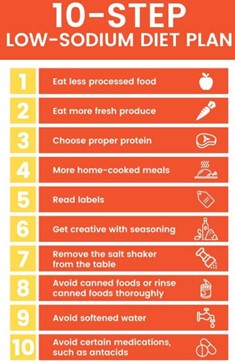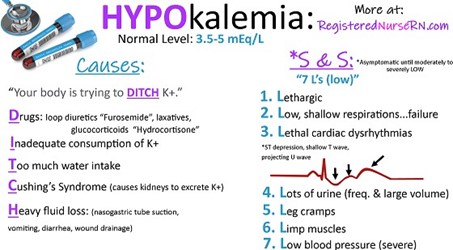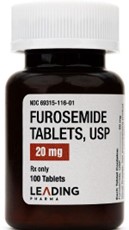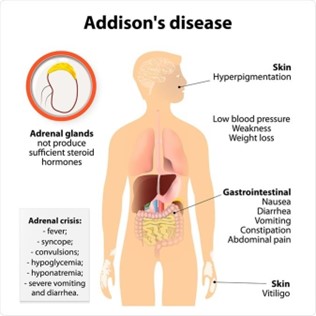A client has been taught to restrict dietary sodium. Which food selection by the client indicates to the nurse that teaching has been effective?
chicken leg, one slice of bread with buter, and steamed carrots
A grilled cheese sandwich with tomato soup
Slices of ham and cheese on whole grain crackers
Chinese take-out, including steamed rice.
The Correct Answer is A
This meal choice is low in sodium as it contains fresh ingredients and does not include processed or pre-packaged foods that are typically high in sodium. Chicken, bread, and carrots are naturally low in sodium, and the client can control the amount of added salt or seasoning. In contrast, the other food choices are likely to be high in sodium due to added salt, cheese, or processed ingredients.
Therefore, the nurse should encourage the client to choose fresh, low-sodium foods and avoid processed or pre-packaged meals.

Nursing Test Bank
Naxlex Comprehensive Predictor Exams
Related Questions
Correct Answer is B
Explanation
Furosemide is a loop diuretic that works by blocking the reabsorption of sodium and chloride in the ascending loop of Henle in the kidney, leading to increased urine output. However, this medication can also cause potassium loss through increased urinary excretion, which can lead to hypokalemia (low potassium level). Hypokalemia can cause confusion, weakness, and other neurological symptoms.
The normal range for serum potassium is 3.5 to 5.0 mEq/L. A potassium level of 2.9 mEq/L is below the normal range and is considered hypokalemic. Therefore, the nurse should correlate the client's confusion with the low potassium level and notify the healthcare provider to adjust the medication or provide potassium supplements if indicated.


Correct Answer is B
Explanation
The statement "I had the stomach flu earlier this week and couldn't take the hydrocortisone" indicates that the patient may not be adhering to their prescribed medication regimen, which can lead to an Addisonian crisis. Therefore, the nursing diagnosis of ineffective therapeutic regimen management related to lack of knowledge of management of the condition is appropriate.
Addison’s disease is a condition in which the adrenal glands do not produce enough cortisol and aldosterone. Hydrocortisone is a glucocorticoid medication that is often used to replace the cortisol that the adrenal glands are not producing. In the Addisonian crisis, the body is unable to produce the necessary levels of cortisol and aldosterone, which can lead to potentially life-threatening complications such as hypotension, dehydration, and electrolyte imbalances.
The other statements may indicate areas where patient education is needed, but they do not directly relate to the immediate risk of an Addisonian crisis.

Whether you are a student looking to ace your exams or a practicing nurse seeking to enhance your expertise , our nursing education contents will empower you with the confidence and competence to make a difference in the lives of patients and become a respected leader in the healthcare field.
Visit Naxlex, invest in your future and unlock endless possibilities with our unparalleled nursing education contents today
Report Wrong Answer on the Current Question
Do you disagree with the answer? If yes, what is your expected answer? Explain.
Kindly be descriptive with the issue you are facing.
